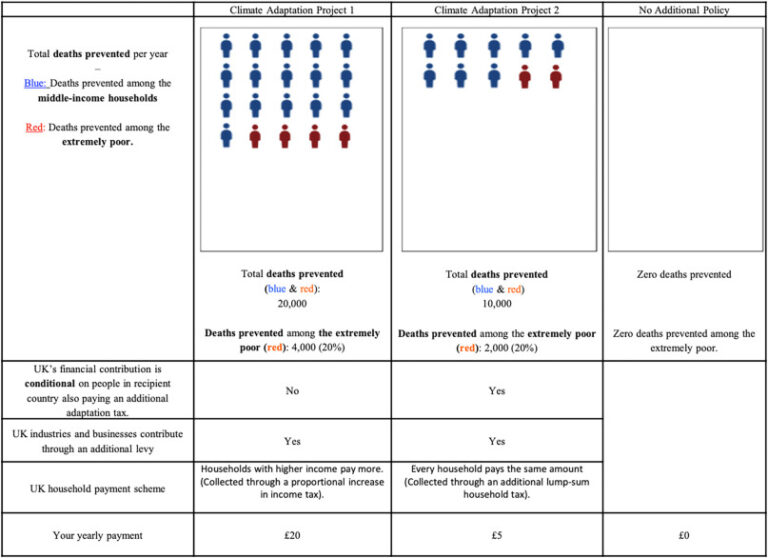Understanding public support for international climate adaptation payments: Evidence from a choice experiment

External Links
Abstract
While the importance of climate change adaptation is not in doubt, adaptation funding in developing countries remains scarce. Therefore, climate finance institutions and national decision-makers face difficult trade-offs when allocating funds. While not a substitute for expert judgement, we argue that understanding how the public thinks could play a role in building support. Using a representative sample of the UK population, we use a discrete choice experiment to explore in particular the way in which distributional considerations drive respondent decisions in two dimensions: (a) among recipients of adaptation finance in recipient developing countries, and (b) among those who contribute to this finance (via taxation). We categorise our results as follows. First, respondents show strong distributional preferences for funds to reach the poorest individuals, supporting adoption of egalitarian policy mandates among climate adaptation funds. Secondly, respondents prefer an ‘ability-to-pay’ approach over the ‘polluter-pays-principle’ as a way of funding. Thirdly, our results suggest that a focus on communicating future benefits to UK residents can increase policy support. Overall, however, our findings also reveal that public support for global climate adaptation payments is insufficient. Yet we provide means of understanding how to allocate all-too-scarce funds and how to increase support for adaptation finance.
Tobias Kruse, Giles Atkinson, Understanding public support for international climate adaptation payments: Evidence from a choice experiment, Ecological Economics, Volume 194, 2022, 107321, ISSN 0921-8009,
https://doi.org/10.1016/j.ecolecon.2021.107321.

